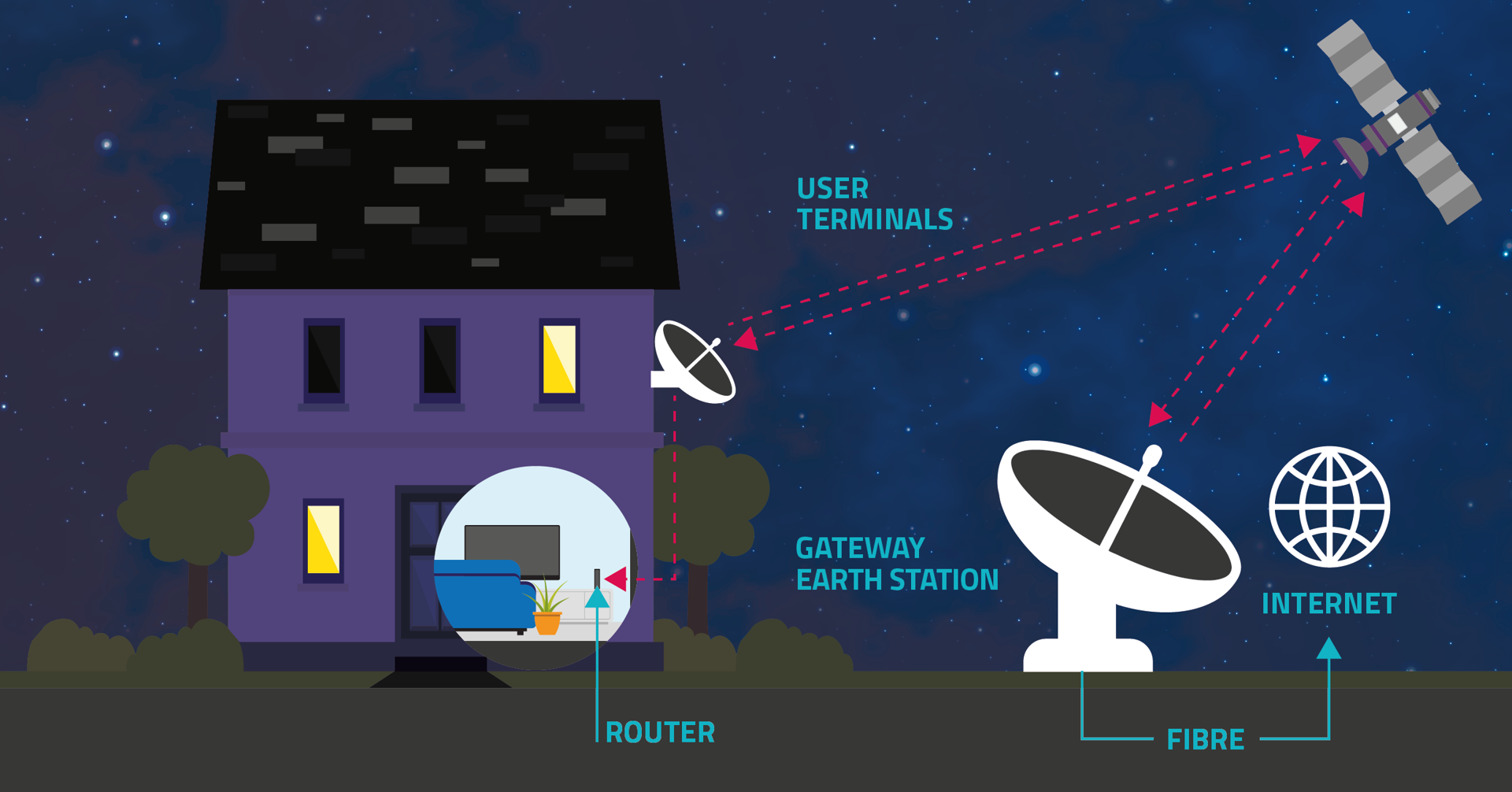
- Rural areas, planes and ships set for better broadband availability as more airwaves provided for satellite services under new space strategy
- Satellite operators Starlink and Telesat granted new licences
- Future-focused spectrum roadmap to enable innovation and growth for new and existing radio spectrum users
People living in rural areas and passengers on planes and ships stand to receive better broadband as Ofcom announces more radio spectrum for satellite services, and new licences are granted to Starlink and Telesat.
With rapid advances in technology, demand for radio spectrum – the valuable yet finite, invisible radio waves that wireless communications devices rely on – is growing.
Today we have set out a broad, future-focused plan for how we will enable innovation and growth for new and existing users of radio spectrum. This includes a new strategy for supporting the space sector and harnessing the huge potential provided by communications services delivered via satellite.
Supporting satellite communications
Satellite operators can now access more airwaves so they can provide a wider range of broadband services, such as helping to better connect homes and businesses in hard-to-reach rural areas, as well as on trains, in the air and at sea.
We are extending satellite spectrum access to include the 14.25-14.5 GHz band, doubling capacity available for a range of services to transmit data to satellites.
Non-geostationary orbit (NGSO) satellite systems are a crucial way to deliver better connectivity. These orbit the Earth, tracked by satellite dishes as they move, and can deliver higher speeds and faster responsiveness.

We are today granting licences to Starlink for six NGSO ‘gateway earth stations’ – large dishes on the ground that connect its satellite network to the internet. The licences will enable Starlink to provide broadband services to more homes and businesses.
We have also approved an application from Telesat for an Earth Station Network Licence for its Lightspeed constellation, meaning it will be able to offer satellite connectivity to people and businesses in the UK for the first time.
Our space strategy also includes protections for earth observation satellites, which are collecting vital data on our weather and climate change. We are also supporting companies launching satellites from the UK and planning for future missions to the Moon and Mars.
You can’t see or feel radio spectrum, but all our wireless communication depends on it. Incredible new services are being developed, meaning demand for spectrum is growing.
This is particularly true in space, where satellite technology offers faster and more reliable internet services for those living in remote areas, as well as planes and ships. Today is one small step in our work to make sure everyone can benefit from these giant leaps in innovation.
David Willis, Spectrum Group Director at Ofcom
